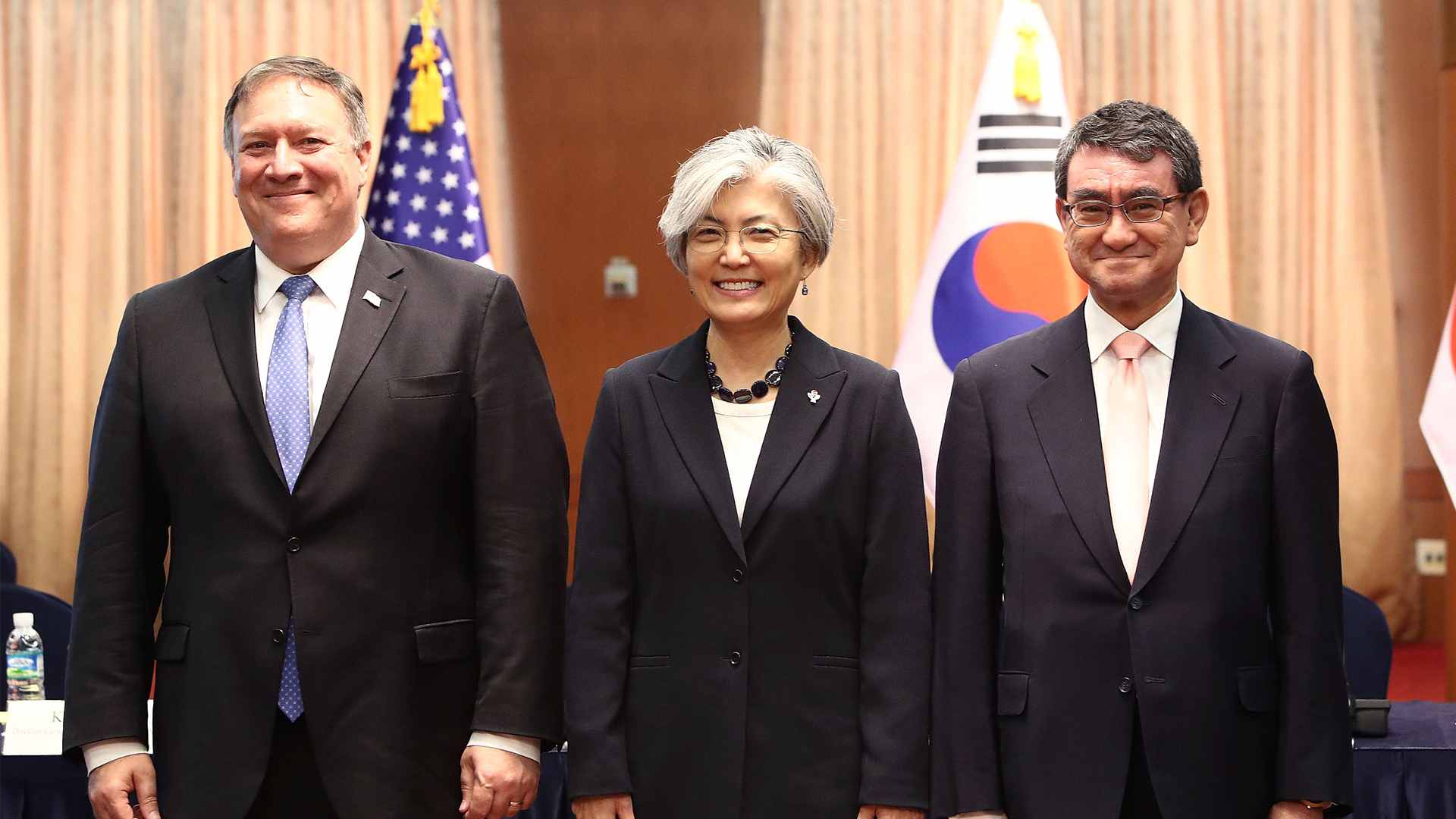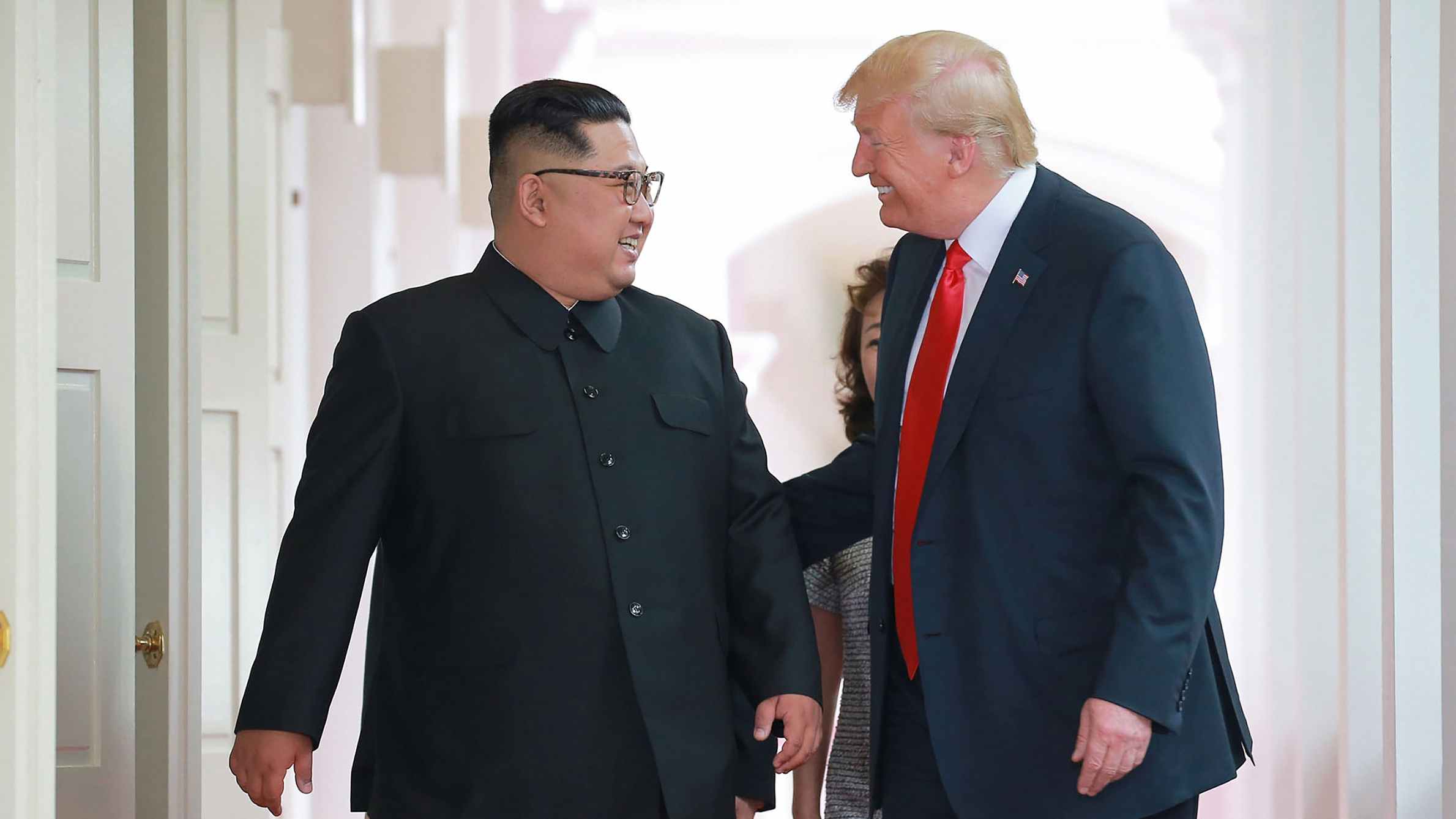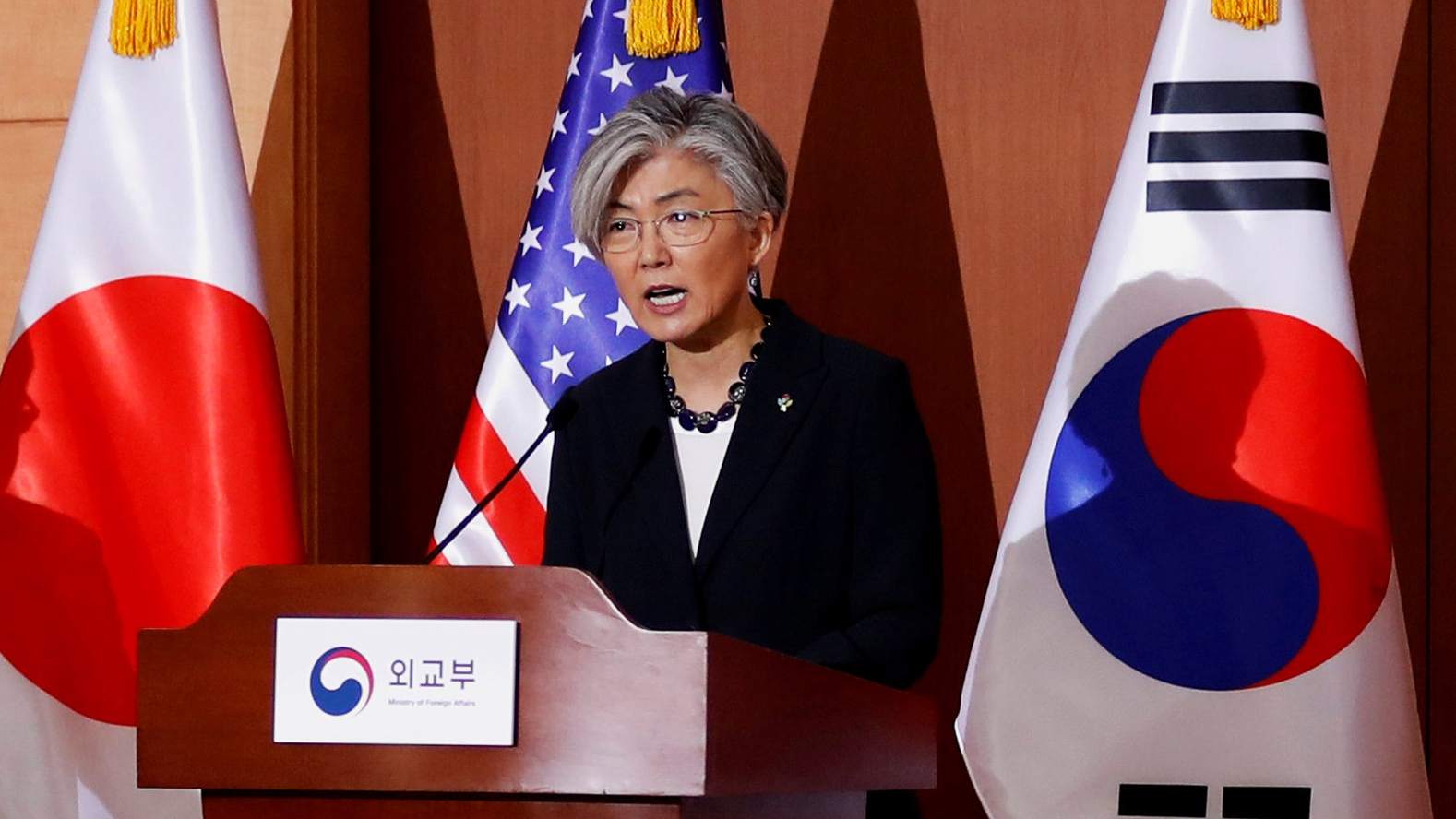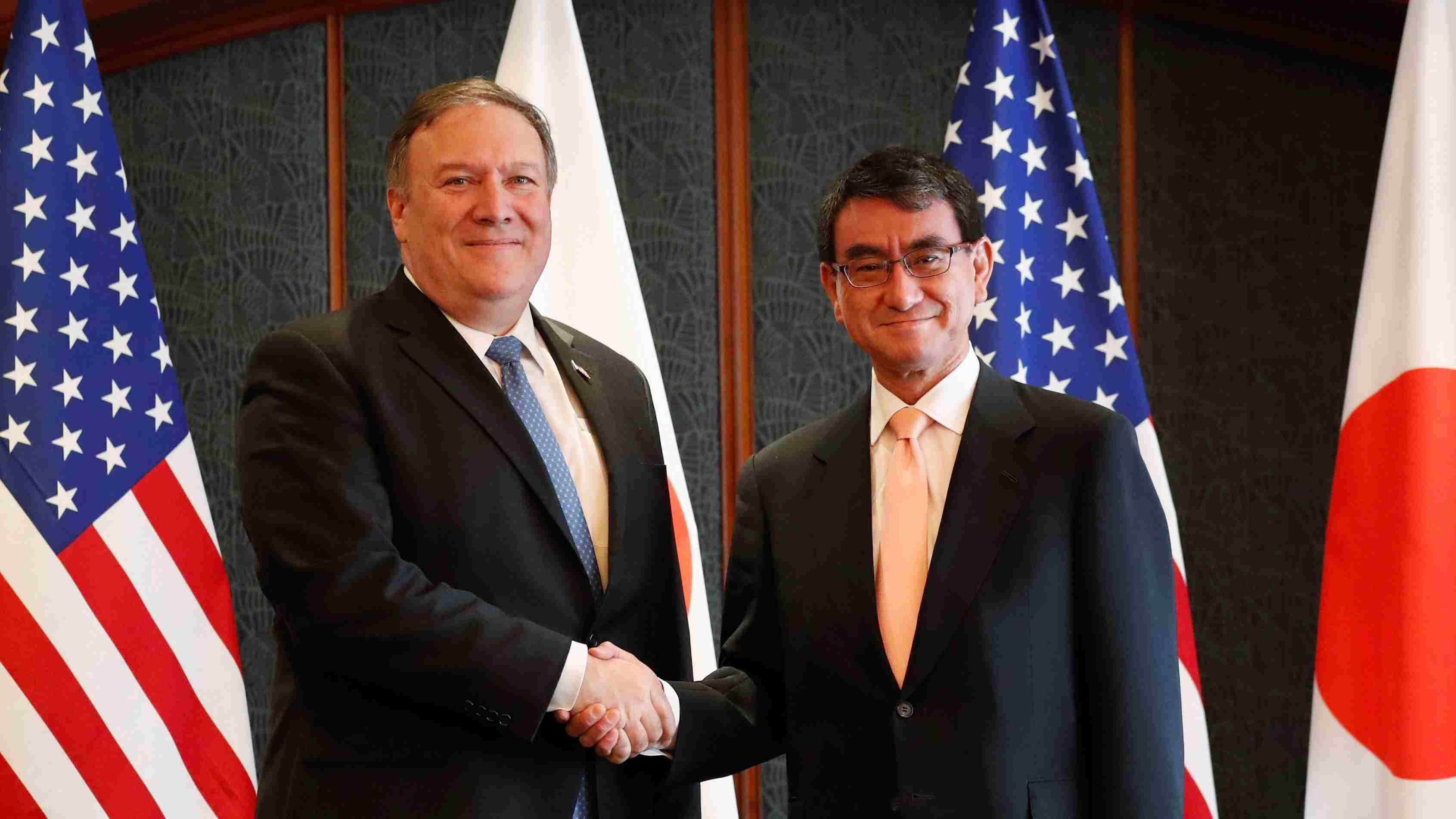
Politics
12:26, 14-Jun-2018
No DPRK sanctions relief before denuclearization, Pompeo insists
By John Goodrich and Duan Fengyuan
01:11

Top diplomats from the US, the Republic of Korea and Japan on Thursday insisted that "complete, verifiable, irreversible denuclearization" was the only path to sanctions relief for the Democratic People's Republic of Korea.
"There will be no economic or sanctions relief before denuclearization has taken place," US Secretary of State Mike Pompeo said at a press conference in Seoul alongside Japanese Foreign Minister Taro Kono and Republic of Korea Foreign Minister Kang Kyung-hwa, two days after the Trump-Kim summit.

US President Donald Trump (R) and DPRK leader Kim Jong Un (L) walk to attend their summit, at the Capella Hotel on Sentosa island in Singapore, June 12, 2018. /VCG Photo
US President Donald Trump (R) and DPRK leader Kim Jong Un (L) walk to attend their summit, at the Capella Hotel on Sentosa island in Singapore, June 12, 2018. /VCG Photo
The three senior diplomats stressed that while Tuesday's summit in Singapore offered a great opportunity, there was much work still to be done. "The June 12 summit is not the end, but a new beginning towards a denuclearized and peaceful DPRK," Kang said.
The ROK foreign minister added that she expected "substantial progress" in future talks, and expressed hope that those discussions would "spell out a more concrete picture."
Pompeo described the next steps as "a process, and not an easy one."
Denuclearization
US President Donald Trump and DPRK leader Kim Jong Un signed a joint statement agreeing to work towards "complete denuclearization of the Korean Peninsula" in Singapore on Tuesday, though details of the process by which this would be achieved are yet to be set out.
Pompeo appeared to rule out a step-by-step approach that would offer economic help to Pyongyang during that process, twice saying that there would be no sanctions relief before denuclearization had taken place.

ROK Foreign Minister Kang Kyung-wha addresses a joint news conference alongside US Secretary of State Mike Pompeo and Japanese Foreign Minister Taro Kono in Seoul, June 14, 2018. /Reuters Photo
ROK Foreign Minister Kang Kyung-wha addresses a joint news conference alongside US Secretary of State Mike Pompeo and Japanese Foreign Minister Taro Kono in Seoul, June 14, 2018. /Reuters Photo
On Wednesday, Pompeo insisted that "complete denuclearization" noted in the joint document meant "complete, verifiable, irreversible denuclearization."
Asked by a reporter why the full phrase did not appear, he said: "It's in the statement. You're just wrong about that ... Because complete encompasses verifiable and irreversible. I suppose you could argue semantics, but let me assure you that it's in the document."
Kono, speaking on Thursday amid reports that Japan is seeking to arrange talks between Prime Minister Shinzo Abe and Kim, said a "package solution" would have to be drawn up. He described the release of Japanese hostages from the DPRK as a "precondition."
Pompeo said on Wednesday that he hoped "major disarmament" would be achieved within the next two and a half years, while Trump has expressed optimism that the process would begin "very quickly."
Military exercises
Pompeo, Kang and Kono seemed to present a united front, insisting their alliance remained "ironclad" despite the surprise US decision to freeze military exercises with the ROK.
"There is no difference between how we will address the denuclearization of North Korea (DPRK)," the US secretary of state said.
Trump raised eyebrows in a press conference immediately after the summit, when he announced an end to "war games" – an apparent reference to joint military exercises with the ROK – despite the issue not being addressed in the joint document. The decision, which is reported to have caught Seoul and US forces in the region unawares, is expected to be formally announced later on Thursday.

US Secretary of State Mike Pompeo shakes hands with Japan's Foreign Minister Taro Kono during a bilateral meeting at a hotel in Seoul, June 14, 2018. /Reuters Photo
US Secretary of State Mike Pompeo shakes hands with Japan's Foreign Minister Taro Kono during a bilateral meeting at a hotel in Seoul, June 14, 2018. /Reuters Photo
The freeze, which is in line with China's "double suspension" proposal, surprised Japan and the ROK. It also remains unclear exactly what Trump meant by "war games."
Kang insisted that the ROK-US alliance was "as robust as ever," and added that the US had played and would continue to play a crucial role in peace and deterrence on the Korean Peninsula.
Kono said details of the pause in US-ROK military exercises were still to be discussed, and any freeze was contingent on the DPRK sticking to its commitments. He also insisted "no security guarantees have been given yet" to the DPRK, and that the US remained committed to defending its allies in the region.
Pompeo is due to arrive in Beijing for talks with Chinese President Xi Jinping and Chinese State Councilor and Foreign Minister Wang Yi late on Thursday.
951km

SITEMAP
Copyright © 2018 CGTN. Beijing ICP prepared NO.16065310-3
Copyright © 2018 CGTN. Beijing ICP prepared NO.16065310-3